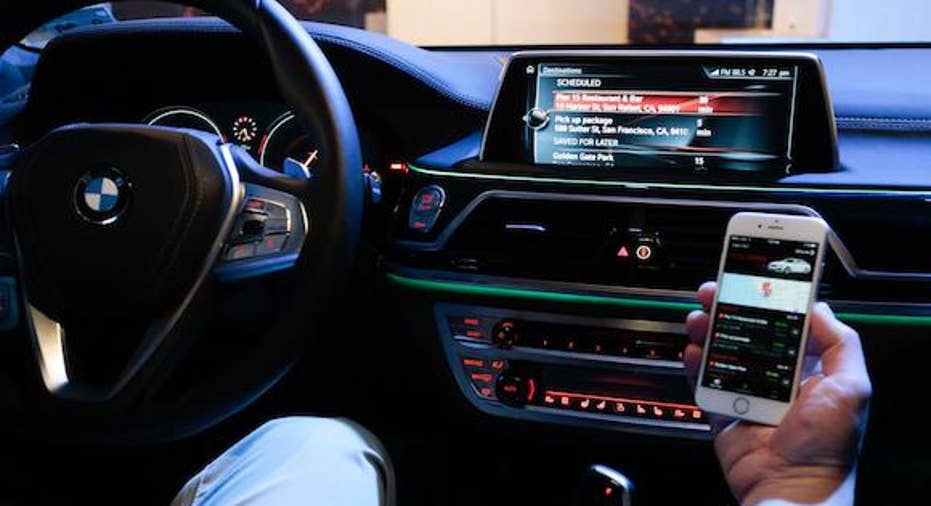Microsoft Isn't Building a Car, but Don't Count It Out of the Connected Car Space

Image source: BMW.
The connected car will allow drivers and passengers to better sync their schedules, houses, communications, driving preferences, etc. to their phones and wearable devices. For example, some Mercedes-Benzes can already tell Nest thermostats to turn your home's temperature up or down depending on whether the car is arriving home or leaving.
And while Google, Tesla, and Apple are getting lots of attention about the future of autos, Microsoft is making a big play in the connected car market as well.
Just this week, BMW AG revealed at Microsoft's developers build conference that it will use Microsoft's Azure cloud computing service to power its new Connected app for its vehicles.
How Azure connects BMW's cars BMW's new Connected app is essentially a mix between Google Maps, a text messenger, car keys, and a digital assistant -- and the brains behind it are Microsoft's Azure databases and machine learning capabilities.
The iOS app handles a multitude of tasks, including driving directions and notifications to friends and family when you'll be late; it syncs with your Outlook calendar to find out when and where you're next meeting is; and it can be used to lock/unlock doors, and check the battery life in hybrid vehicles.
Some of these features are already available in other apps, of course. But using Azure to power the BMW Connected app allows all of this to happen from one source, and thereby allows the Azure platform to learn from certain driving patterns, favorite locations, etc.
This plays into a much broader connected car market that doesn't just bring our vehicles online, but also allows them to make destination suggestions for us, communicate to others for us, and dive deeper into our calendars and appointments so that they can help us get to our locations faster.
Tapping into the cloud market Amazon.com is dominating the cloud space right now, with its AWS platform. The company brought in an amazing $7 billion in revenue last year from AWS, but Microsoft isn't giving up.
The company brought in about as much cloud revenue as Google last year, but it's notable that BMW chose Microsoft for its Connected app because the automaker has historically used Amazon for its cloud computing needs.
But Amazon is making big inroads into the connected car space as well. The company partnered with Ford just two months ago to allow Sync Connect users to connect their cars to smart-home devices using Amazon's cloud network. Right now, that means Ford users can adjust their home temperature or turn the lights on in the house through some of Ford's vehicles.
But if Microsoft can show that Azure is more than capable for BMW's cloud needs, then other carmakers may look to Azure for their connectivity needs as well. An expected 75% of worldwide car shipments are expect to be for connected cars, and many of them will need some level of cloud computing component either for the car itself or an app.
While it's still early on in automotive cloud space, Microsoft is clearly taking a big step forward with BMW, and I think we'll soon see more automakers tapping Azure for their needs as well.
The article Microsoft Isn't Building a Car, but Don't Count It Out of the Connected Car Space originally appeared on Fool.com.
Chris Neiger has no position in any stocks mentioned. The Motley Fool owns shares of and recommends AMZN, AAPL, F, and TSLA. The Motley Fool recommends BMW and Microsoft. Try any of our Foolish newsletter services free for 30 days. We Fools may not all hold the same opinions, but we all believe that considering a diverse range of insights makes us better investors. The Motley Fool has a disclosure policy.
Copyright 1995 - 2016 The Motley Fool, LLC. All rights reserved. The Motley Fool has a disclosure policy.



















